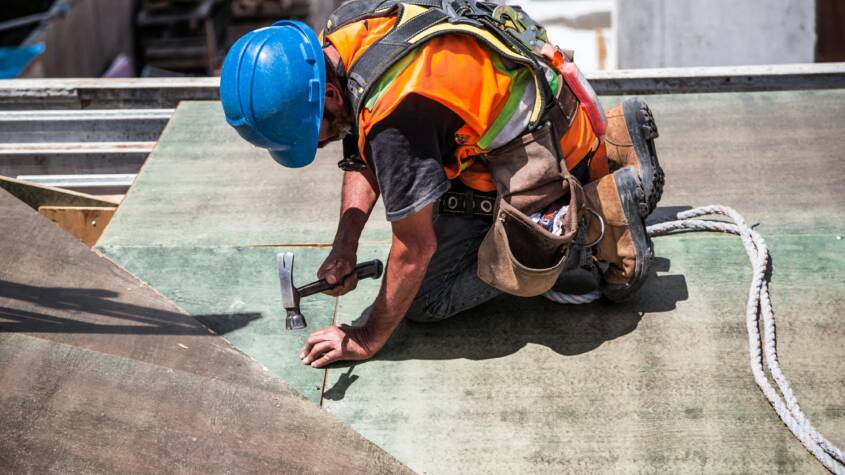
Finding reputable Renovation Companies Near Me can significantly enhance any home improvement project. Local renovation services not only offer personalized solutions but also leverage their understanding of the community and its specific needs. Whether it’s a kitchen remodel, bathroom upgrade, or a complete home overhaul, choosing a nearby company can streamline communication and project management.
When searching for renovation companies, it’s essential to consider factors such as customer reviews, past project portfolios, and the range of services offered. Residents can verify local credentials and expertise through various online platforms and community recommendations. By engaging with companies familiar with the area, homeowners gain confidence that their vision aligns with local building regulations and styles.
Engaging a local renovation expert can make the process smoother and more efficient. Shorter travel times and closer oversight often lead to a more cohesive working relationship, resulting in a successful renovation experience.
Choosing Renovation Companies
Choosing the right renovation company involves a thorough assessment of their experience, client feedback, pricing structures, and legal credentials. This process ensures the selection of a reliable partner for home improvement projects.
Evaluating Experience and Specialization
Experience plays a critical role in the success of renovation projects. A company with several years in the industry is likely to handle unexpected challenges effectively. Specialization also matters; some companies focus on specific types of renovations, such as kitchens or bathrooms. Identifying a contractor’s area of expertise can ensure they have the necessary skills for a particular project.
Clients should inquire about past projects similar to theirs. A portfolio displaying completed renovations gives insight into the quality of work and style. Additionally, ask about the size and scope of projects the company typically undertakes for better alignment with expectations.
Assessing Reviews and References
Customer reviews and references are invaluable tools in the decision-making process. Online platforms, such as Google or Yelp, offer real-time feedback from previous clients. These reviews can highlight strengths and weaknesses in various aspects of the company’s work.
Requesting references allows for personal insight into the renovation experience. Speaking directly to past clients can reveal important information about project timelines, communication, and overall satisfaction. Seek out reviews that specifically mention aspects relevant to the client’s own renovation plans, as this can provide a clearer picture of what to expect.
Understanding Pricing and Quotations
Pricing transparency is essential when choosing a renovation company. Clients should request detailed quotations that break down labor, materials, and any additional costs. This breakdown helps in comparing prices between different companies more accurately.
It’s important to be cautious of quotes that seem unusually low. Such pricing may indicate hidden fees or subpar quality of work. Clients should also inquire about payment schedules and financing options, as these can impact their overall budget.
Verifying Licenses and Insurance
Ensuring that a renovation company is licensed and insured is non-negotiable. Verification of a license confirms that the company meets local regulatory standards. Additionally, insurance protects the client from liability in the event of accidents or damage during the renovation process.
Request proof of insurance coverage, including general liability and workers’ compensation. This documentation safeguards against potential financial loss. If a company cannot provide these documents, it may signal a lack of professionalism or reliability. Clients must prioritize working with compliant contractors for peace of mind.
Preparing for Your Renovation Project
Taking time to prepare for a renovation project is crucial for its success. Defining clear goals, budgeting accurately, planning timelines, and understanding regulations can streamline the process and reduce potential challenges.
Defining Project Scope and Goals
Clearly defining the project scope and goals sets the foundation for the entire renovation. This involves identifying specific areas of improvement, whether it’s updating a kitchen, adding a room, or enhancing curb appeal.
It is important to focus on desired outcomes. For example, creating an open floor plan may require more than just knocking down walls. Involving key stakeholders at this stage ensures that everyone’s vision aligns with the project.
A detailed scope also helps avoid scope creep. This is when additional tasks are added without adjusting costs or timelines. Documenting all goals will provide a clear reference point throughout the renovation.
Setting a Realistic Budget
Setting a budget involves more than just determining how much money is available. It requires a thorough understanding of costs associated with materials, labor, and any unexpected expenses.
A detailed budget should include line items for each aspect of the project, such as:
- Materials: Flooring, cabinets, plumbing fixtures.
- Labor: Contractor fees and expert services.
- Contingency Fund: Generally, 10-20% of the total budget for unforeseen issues.
It is critical to research and compare prices from different suppliers and contractors. This will provide a clearer picture of what to expect financially and help in securing the necessary funds.
Timeline Planning and Milestones
Creating a timeline is essential for keeping the renovation on track. A well-defined timeline includes key milestones that allow for monitoring progress.
Start by breaking the project down into phases, such as:
- Design and Planning: Finalizing layouts and styles.
- Permits and Approvals: Securing necessary documentation.
- Construction: Actual renovation work.
Setting realistic deadlines for each phase keeps everyone accountable. It is also important to build in time for delays, as renovations can often run into unexpected issues.
Regular check-ins can help identify any slowdowns so that adjustments can be made as needed, ensuring that the renovation progresses smoothly.
Navigating Local Regulations and Permits
Understanding local regulations and obtaining permits is a critical aspect of preparing for a renovation. Each locality has specific building codes and requirements that must be adhered to.
Before starting the project, contact local building authorities to inquire about necessary permits. Some common permits include:
- Building Permits: Required for structural modifications.
- Electrical Permits: Necessary for electrical work.
- Zoning Permits: Needed for property use changes.
Failing to secure the appropriate permits can lead to fines or work stoppage. Moreover, it is advisable to consult with a professional contractor who is familiar with local regulations to ensure compliance throughout the renovation process.
Fitter First: Unlocking Your Potential for a Healthier Lifestyle
Fitter First is a concept focusing on optimizing one’s physical well-being through a struc…






